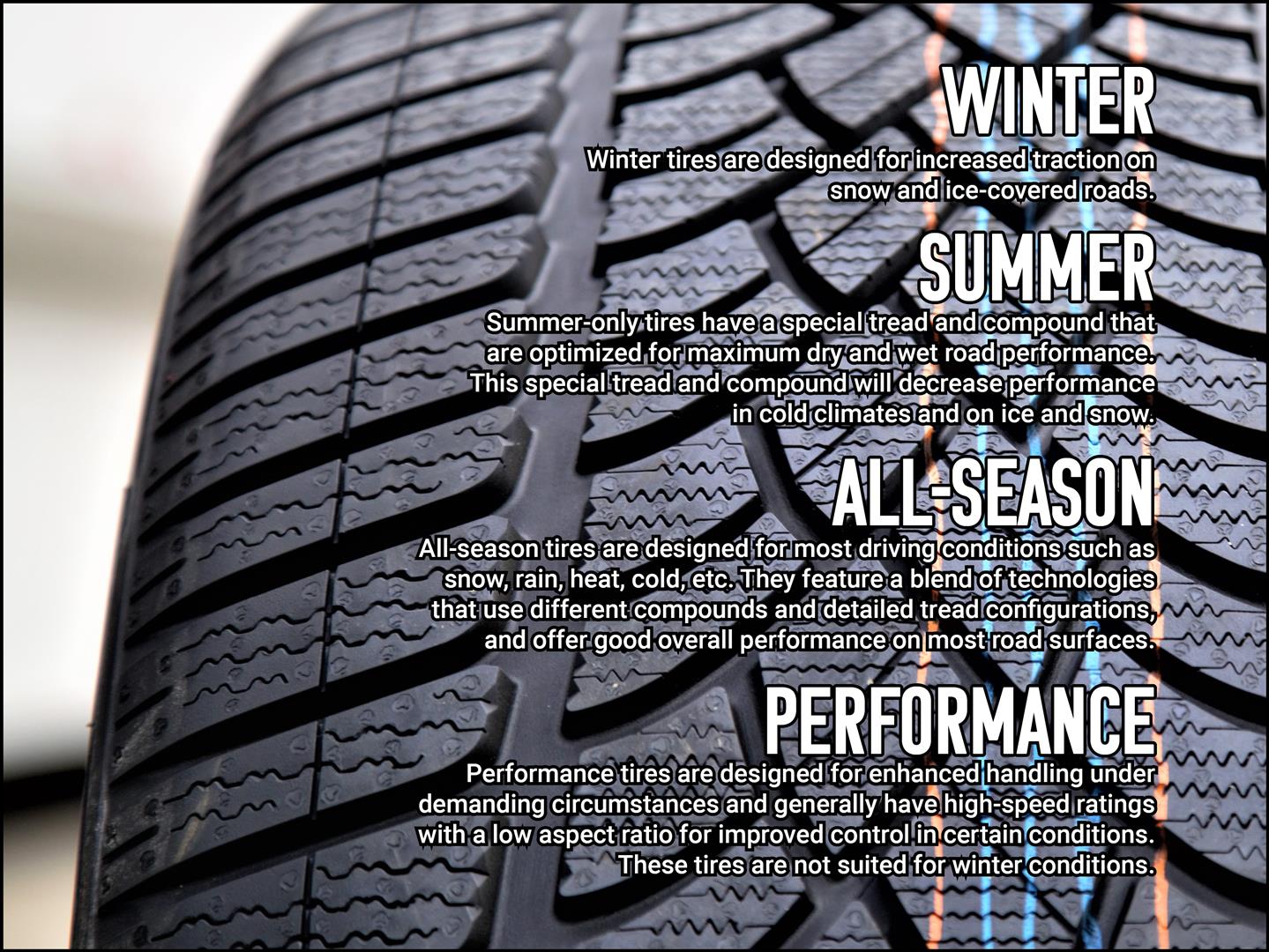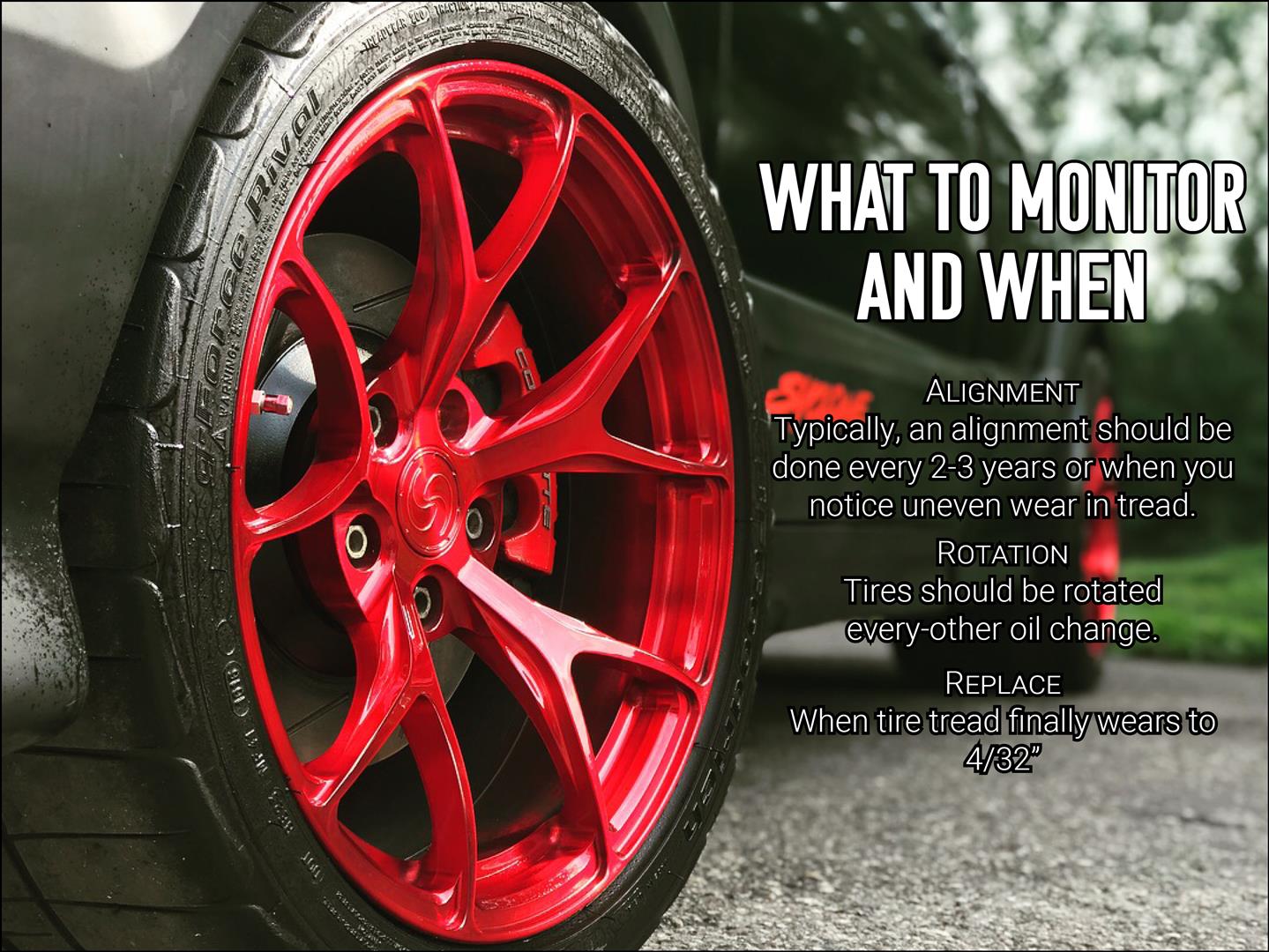Welcome to another installment of Maintenance Monday – our blog series designed to help you understand your vehicle more and keep it on the road longer!
This week we are highlighting some items that, when kept up regularly, could not only save you money but more importantly, impact your safety: brakes and tires.
Understanding Your Brake System and Tires
Tires and brakes are on the forefront of the operation of your vehicle. How well your vehicle grips the road is linked directly to your tire tread (the patterns on the surface of your tires). Patterns differ depending on the tire type and exist to boost traction in different conditions.

Your brake system is made up to include brake pads, the brake line, calipers, rotors and the master cylinder. Brake pads and rotors are the point at which the braking system connects with the tires. Due to the stress of extreme friction, these components deteriorate more easily than others and need more frequent maintenance.
The brake system itself relies on hydraulic fluid, also known as brake fluid. Brake fluid flows through the brake lines and provides the power required to bring a vehicle to a stop. Brake fluid, just like tires and other brake components, will absorb moisture from the air and degrade over time.
Why Are These Items So Important?
The short and more obvious answer is of course, your safety. How well your vehicle stops relies significantly on both your brakes and tires; quality brakes will decrease the prospect of a collision as they’ll allow you to stop within a timely manner whereas low quality or deteriorated brakes will require you to engage the brake long before you actually need to stop the vehicle.
Brakes And Tires Wear With Use
Your tires are always in contact with the road and will naturally wear down over time. Similarly, your brakes will naturally deteriorate over long-term use which is why monitoring the condition of these items is so important.
Maintenance Item and Time Frames
There are many variables that affect the longevity of your brakes and tires. Servicing or replacing these can depend heavily on the person operating the vehicle as well as the regular, every-day road conditions your vehicle may experience.
Because your vehicle’s brake system and brake fluid are so crucial to its safe operation, it is important to stay on top of maintenance procedures to ensure damages do not extend to other brake components, saving you from increasing repair costs.
Not every driver is the same.
How you drive your vehicle is an important factor when determining the life of your brakes and tires. We’ll put it this way, someone who drives their vehicle conservatively probably won’t need a brake replacement or new tires as frequently as a new driver with a lead foot might.
First step, check your vehicle’s owner’s manual for recommended maintenance specific to your vehicle’s manufacturer. Then, you can follow these general rules:


Are you thinking it may be time to check out your brakes or tires? Maybe experiencing one of the above? Click here to set up your next oil service or brake inspection so we can proactively address any potential or occurring issues and/or concerns.
Did you know? With every oil service performed at Lancer, we conduct a 42-point inspection. With this you’ll receive a digital inspection summary that is sent to you electronically, so you can physically see why we make certain recommendations. We’ll then work with you to prioritize what services are needed and help you develop a plan that works within your timeframe and budget. Call us today to learn more (651) 964-1968.

